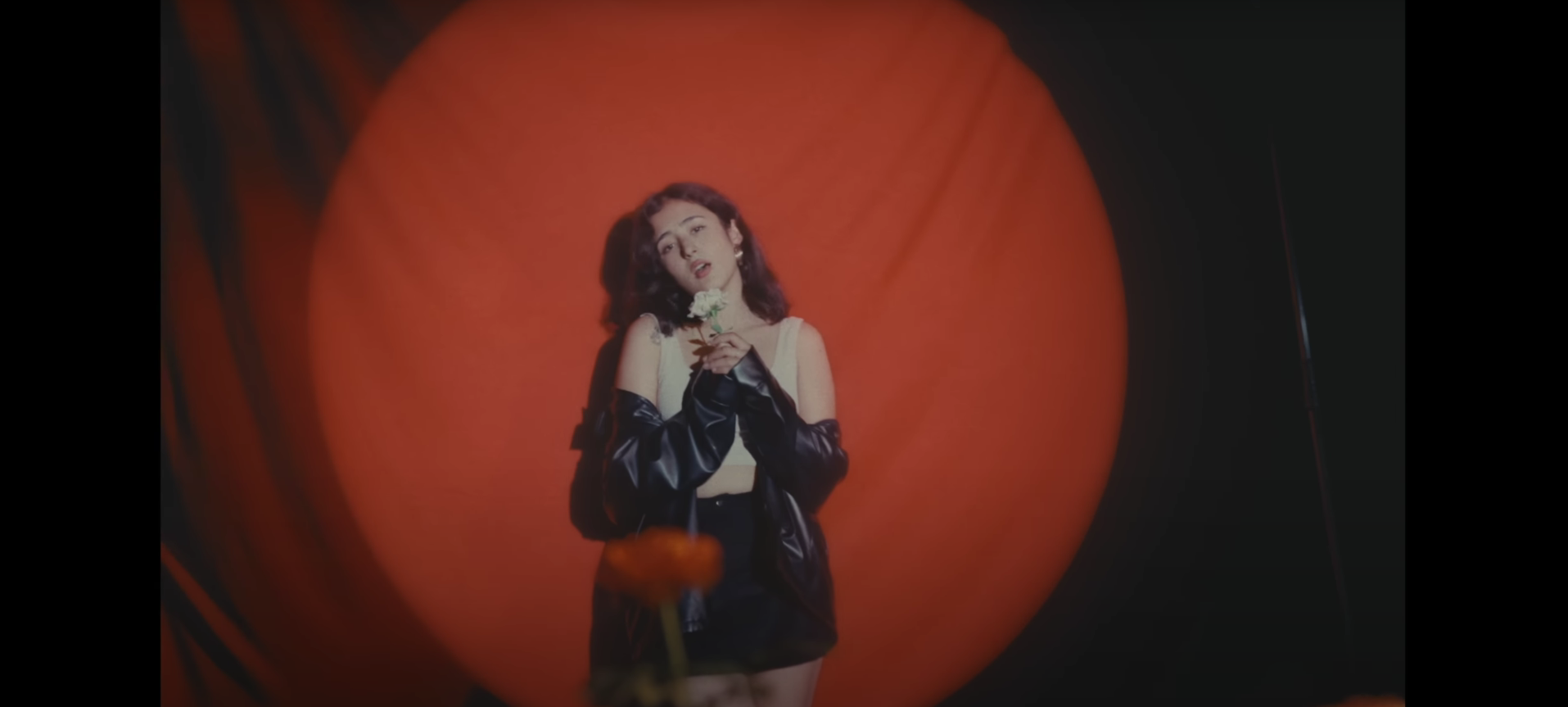Entertainment
Blending indie influences with experimental melodies
Prajina discusses her songwriting inspirations and the stories behind popular tracks ‘Yo Sahar’ and ‘Hami’.
Rishika Dhakal
It is September 2018. That time of the year when the weather slowly transitions from warm to chilly. Prajina is on her terrace to collect the sun-dried clothes. The line “Yo Sahar Chiso Hudai Cha” (the city is getting cold) keeps coming to her mind.
The line takes shape into a lyric, and after two years, Prajina has released her first-ever hit song, ‘Yo Sahar’. Though the song reached its listeners slowly, it soon became a hit—thanks to social media platforms.
With thirteen songs released so far, Prajina, with her hit songs ‘Yo Sahar’ and ‘Hami’, has become a promising artist in Nepal’s musical landscape.
A significant turning point in her career came when she had the opportunity to collaborate on ‘Hola At Your Boy’ with renowned Indian musicians Badshah and Krsna.
Growing up in Chitwan, her inclination towards music started when she began humming to Western songs. “Along with watching shows such as ‘Hannah Montana’, I used to listen to many songs that streamed on VH1,” she says.
Like many children who aspire to emulate those they admire, Prajina dreamed of becoming an actress as she grew up.
“I was fascinated by a character named Alex in ‘Wizards of Waverly Place’. I always thought of her as a wizard, and it was only later that I realised she was an actress. That’s when I decided I wanted to become an actress too,” Prajina reflects on her childhood.
However, Prajina’s wish to become an actress changed after she was introduced to Selena Gomez’s songs ‘Naturally’ and ‘The Scene’ by her cousins.
As an introvert, Prajina showed reluctance to actively participate in extracurricular activities like athletics and dancing. Nonetheless, she had her reservations when it came to music.
“Ever since I was a child, I participated in music competitions organised at school. I didn’t know if I could sing well, but I sang anyway,” she says.
Her teacher’s encouragement boosted her confidence. Because of her vocal dexterity, her singing teacher often assigned her the responsibility of coordinating and managing the choir at her school.
“When I was in sixth grade, my school had me and another girl perform a duet. It was a big deal because I was performing on stage not in a group but on my own for the first time. After that performance, my teachers were impressed, and I felt like I was made for this,” she recalls.
After graduating from high school, Prajina was all set to fly to Australia to pursue her Bachelor’s degree. “Everything was almost finalised except for the interview, which I ended up cancelling,” says Prajina.
Her mom insisted that she complete her bachelor’s in Nepal. At the same time, she was on the lookout for Rizzlers to further her musical journey. That is when she found out about an artist named Bluesss.
“Bluesss saw something in me and encouraged me to stay back to pursue music.” she reflects.
She collaborated with Bluesss to release her first EP, and Prajina formally kicked off her journey as an artist. Another turning point in her musical journey was when ‘Roya’, an event-organising platform, released her song ‘Yo Sahar’, which gained popularity.
“I applied to the ‘Roya’ platform, got selected, and performed. Since it was winter, they asked me which song I wanted to upload. I picked ‘Yo Sahar’ because the cold weather would make the song more relatable,” she explains.
“My first gig was one or two months before ‘Yo Sahar’ became popular,” Prajina recalls.

Having composed all her lyrics independently, Prajina began her lyric writing journey by leaning towards poetry. Slowly and steadily, she learned that music composition required verses, choruses, and transitions like bridge.
Therefore, she started writing songs that integrated her poetic inclination with structured musical compositions, evolving her craft further.
Prajina says she does not limit herself to a specific genre in her singing style. Growing up, she mostly listened to mainstream Hindi and Nepali songs, which didn’t allow her to explore the full depth of music.
“I started listening to indie artists like Joji, Clairo, Faye Webster, moving away from mainstream music. Their style of music felt calming and easier to sing.”
It was only after discovering these indie artists that she began to appreciate music’s diverse nuances and explored styles that felt more soothing and conducive to her vocal expression.
Prajina’s music writing process involves crafting until the song takes shape. Her practice involved exploring the beats of different YouTube artists to create songs she liked. Her popular hits ‘Yo Sahar’ and ‘Hami’ were written during her practice sessions.
Apart from this, empathising with the characters’ emotions from movies and series helps her form music. For instance, her song ‘Hami’ was inspired by the song ‘Love Scenario’ by iKON and the movie ‘La La Land.’
“All these songs tell a story from different perspectives. Anything I see, even shows and movies, feels very personal to me and inspires me to create music,” says Prajina.
In a music scene that favours traditional melodies over experimental music, her recent release, ‘Kina Bhanenau’, deviates from conventional composition. Instead, it is an experimental song composed after studying the subtleties of catchy tunes.
“In making the song, I studied why some songs are catchy and remain with the audience long after the music ends, which was something I did not try early on,” she says.
In summary, the song is about being cheated on—a universal feeling experienced not just by lovers but also by friends and others who are betrayed.
Analysing Nepal’s musical landscape, the budding singer asserts that artists have to work independently. Without constant support, promotion, or PR, one never knows which song will be a hit.
Reflecting on her career, Prajina expresses, “At first, I felt I had to persevere through everything because Nepal lacks the labels and funding to support artists on their journey.”
For now, she has been funding her recording and production independently. “Sometimes, I even have to wait months to release a song due to lack of funds,” she confesses. It is also challenging for experimental and unconventional compositions to gain acceptance, limiting the diversity and growth of music genres in the country.
Prajina hopes that her songs will reach more and more people. “Whether the audience likes the song or not is up to them, but if it doesn’t reach them, there’s no feedback. Without feedback, it’s impossible to gauge impact or make improvements,” she emphasises.
She adds, “Art is about sharing with others, not just creating for oneself. To build a career, you need to find an audience who appreciates your work.”
Her goal is to do more live performances and broaden the reach of her experimental music. “I have written many English songs with various styles, but they remain unreleased as I wait for the right time to release them,” she says.




 18.37°C Kathmandu
18.37°C Kathmandu










